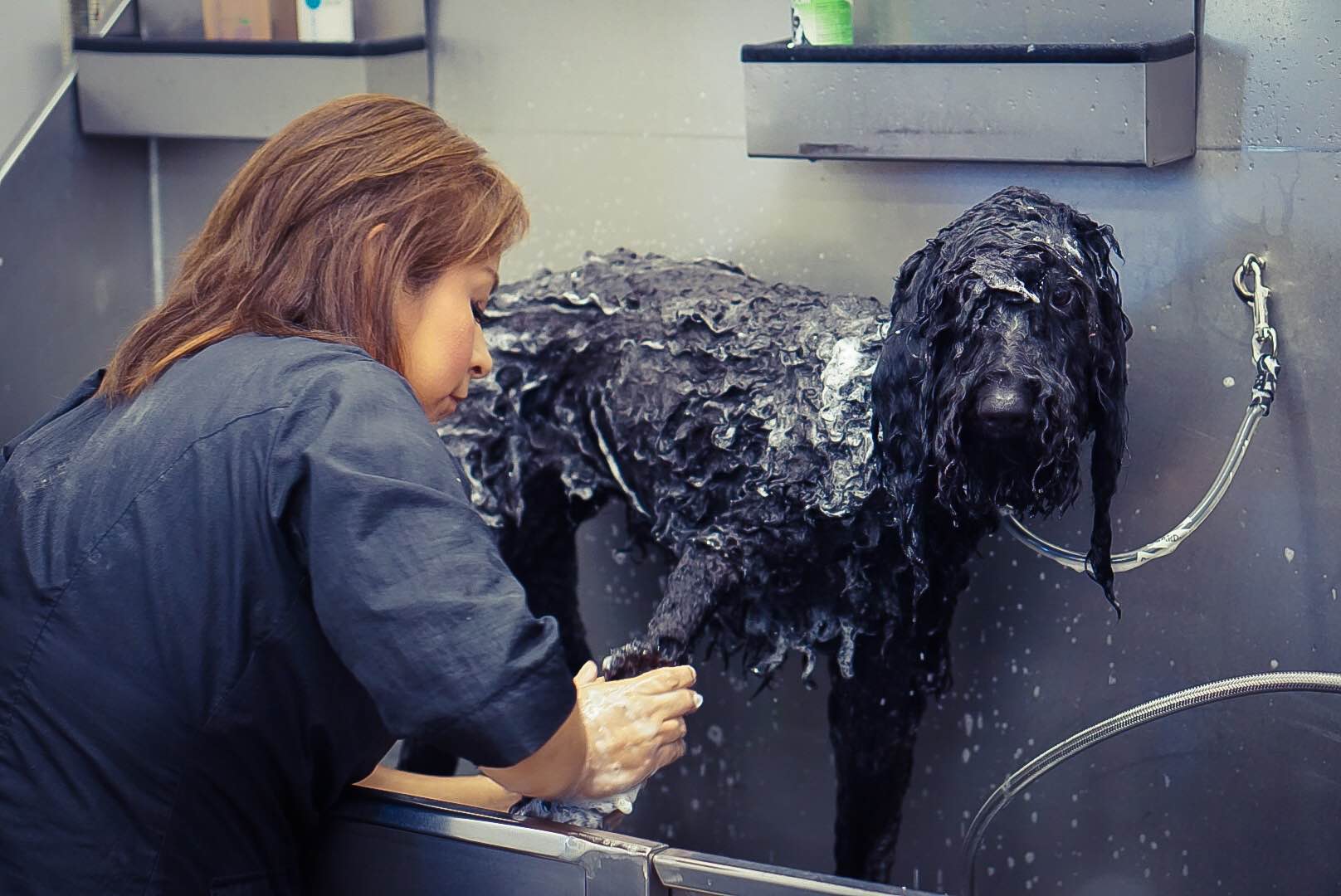With dedication and the right mentor, you will be on the right path to become a successful groomer.
Typically the best way to learn something is to dive right in! Since everything is built on a foundation, it is important to have a basic introduction to grooming before holding a pair of scissors. I would recommend searching for a salon that is willing to mentor and train you. Later, I will give you some guidance in finding the right mentor.
A strong foundation consist of a basic understanding of:
- Animal behavior
- Canine anatomy
- Science behind shampoo & conditioner
- Constructive criticism (from your mentor & clients)
- Customer service (there are many layers to this when it comes to pet owners)
- Team playing
- Controlling your emotions
Seeking Mentorship
Just know the average person does not take one or two months to become a proficient at grooming. Becoming a groomer takes lots of time and dedication; not only from your but from your mentor as well. When it comes to compensation, I think its safe to say that when you are learning, you can’t expect to make big bucks quite yet. However, if you find an apprenticeship, you should always ask what a seasoned groomer is earning annually. Just know that the pay structure vastly varies in our industry. I talk more about that on Compensation. When seeking mentorship or an apprenticeship here are some things to look out for:
- How long has this salon been in business?
- How long has the mentor been grooming?
- Is the salon quantity or quality focused?
- Do they provide tools? (Every salon should – but this can be a debate)
- Does the mentor attend seminars or workshops?
- Do they offer an outline or syllabus?
- What are the expectations and/or job description
- What is the compensation while training? When does it increase?
This is just an idea of what you should ask when considering a position. What I want you to steer clear of is being promised to be trained to groom, it being so busy that there isn’t time to train, and end up being stuck in a bather position one year later. It would be ideal that someone can be by your side every step of the way – but not every environment can provide this. There should be timeframes of how long they will train you on a certain task/topic, i.e. bathing sixty days.
Just know that not every environment is not the right fit. Identifying your personality type and needs is one of the most important things you can do in your professional and personal life. I talk more about this on the Thrive in your environment.
Job Titles and Positions
This is a general list of what a salon will have as far as job title or positions are concerned. Every salon operates very differently and may have an additional position or one broken up into 2 or 3 depending on their volume. Ill give you some examples.
Groomer or Stylist (I like Stylist better as it has a more elevated sound to it.)
Brusher/Bather, Assistant, or Bather Prepper (This position is sometimes separated in high volume environments, or doesn’t exist at all)
Receptionist (some salons do not have a receptionist)
Some salons have 1 person bathing ,1 person drying, 1 person brushing. This system is very efficient for high volume salons. One downside is that the more hands on a pet, the more likely things can be forgotten, i.e. if the dog has an ear infection, they may forget to communicate it down the line and to the owner. Some salons do not have an assistant at all; the groomer bathes and dries all of their dogs. If your salon has a receptionist, it can be a huge help as you don’t have to stop what you are doing to check in/out a pet. However, you still want to maintain a relationship with pet owners to build/keep trust – so be sure not to neglect your clients.
Why don’t some salons offer to train?
One of the biggest concerns of a salon owner is that they will invest their time in training you, then later you become competition by opening a salon nearby. Its happened over and over again. Training from the ground up is a huge investment of time and money for the salon. I feel that it is a privilege to be paid to learn a new skill. In other careers, people often have to pay to go to school then complete an unpaid internship. It takes years before some people can actually make a living from the career they invested in.

